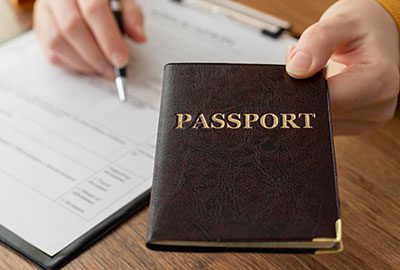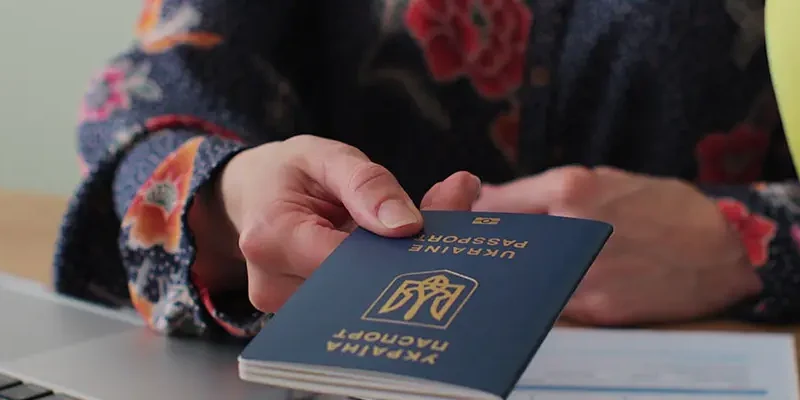What is the Humanitarian Parole?

The United States Citizenship and Immigration Services (USCIS) has the authority to grant a Humanitarian Parole to certain individuals in emergency situations or for reasons of public interest. This permit can be crucial for those who need to enter or remain in the United States without a traditional visa and is a valuable tool for those facing exceptional circumstances.
In this article, we will detail the adjustment of status with humanitarian parole, the difference between a visa and this legal option, the requirements for obtaining it, and the application process. We will also discuss how recent reforms in immigration laws might affect this process in 2024.
Difference Between a Visa and Humanitarian Parole

Before delving into the process of applying for this process, it is important to understand the key difference between a visa and humanitarian parole. While a visa is an official document that allows a foreign citizen to enter and stay in the United States for a specific period, humanitarian parole is a temporary authorization granted in urgent circumstances or for humanitarian reasons.
A visa is obtained through established processes that can take months or even years, depending on the type of visa requested. On the other hand, humanitarian parole is designed for situations where time is of the essence. This permit does not automatically make the holder a permanent resident but can be a step towards adjusting their status in the future.
Humanitarian Parole to Enter the United States
The Humanitarian Parole is a legal tool that allows individuals in emergency situations or for reasons of public interest to temporarily access the country. This permit is ideal for those facing urgent situations such as severe medical issues or extreme family circumstances.
This permit is temporary and is generally granted for a maximum of one year. During this period, the beneficiary may reside in the country and, in some cases, seek an adjustment of status to allow them to remain more permanently.
Requirements for Obtaining Humanitarian Parole


To obtain this authorization, it is essential to meet certain requirements established by USCIS. These include demonstrating an urgent need to enter the United States, such as a medical or family emergency, or the need to be in the country for public interest reasons, such as participating in a crucial court case.
Applicants must submit a formal application to USCIS, accompanied by documentation that supports the urgency of their situation. This documentation can include medical reports, letters of support from relevant organizations or individuals, and any other evidence demonstrating the need to enter the country.
It is important to note that humanitarian parole is not a solution for those seeking to evade the traditional visa process. Nor does it automatically guarantee the right to work in the United States unless a separate work permit is requested and approved.
Application Process for Humanitarian Parole

The application process for humanitarian parole requires careful planning and attention to detail. Here are the essential steps to submit a successful application:
- Determine Eligibility: Before starting the process, ensure you meet the requirements established by USCIS for obtaining humanitarian parole. Consult with an immigration attorney to assess your situation.
- Gather Necessary Documentation: The key to a successful application is providing solid documentation that supports your case. This can include medical records, proof of family relationships, letters of support, and more.
- Complete and Submit Form I-131: This is the official form for applying for humanitarian parole. It must be completed accurately and accompanied by all required documentation.
- Pay the Required Fees: Make sure to include the payment of the fees required by USCIS when submitting your application. In some cases, it is possible to request a fee waiver if you can demonstrate economic hardship.
- Wait for the Decision: After submitting your application, USCIS will review your case and make a decision. If approved, you will receive the humanitarian parole allowing you to enter the United States.
Adjustment of Status with Humanitarian Parole
Once in the United States with humanitarian parole, you may want to seek an adjustment of status to remain in the country permanently. This process can be complex and depends on various factors such as your specific situation and current immigration laws.


Adjustment of status under humanitarian parole may involve applying for permanent residency (Green Card) if you qualify. For those who cannot return to their country of origin due to dangerous or unstable conditions, adjustment of status may be the best option to establish a safe and stable life in the United States.
Changes in Humanitarian Visa Laws 2024
The landscape of immigration laws is constantly evolving, and it is essential to stay informed of any changes in humanitarian visa laws in 2024. These changes may affect both the eligibility and the application process for visas and humanitarian paroles.

Some of the proposed changes for 2024 include new regulations on who qualifies for humanitarian visas, adjustments in application fees, and revisions to processing times. These changes could either facilitate or complicate access to humanitarian parole, depending on individual circumstances.
It is crucial to work with an immigration attorney who is aware of the latest legal updates to ensure your application meets current requirements.
Conclusion
Facing an emergency or urgent immigration-related situation can be challenging. Do not let the lack of information or legal representation hold you back. If you need humanitarian parole or want to learn more about how to obtain an adjustment of status under humanitarian parole, contact our immigration attorneys in Dallas today.
Schedule a consultation with our humanitarian visa experts to ensure you receive the best possible legal advice. We are here to guide you every step of the way and fight for your rights. Call now and start taking control of your future in the United States!
Buscar
Categorías
Populares
Recientes
Programe una cita con nuestro equipo de inmigración
Para cualquier duda, comuníquese con uno de nuestros asesores legales
+1 (214) 501-0560
LUNES - VIERNES:
8:00 AM - 6:00 PMSÁBADOS - DOMINGOS:
Cerrado








